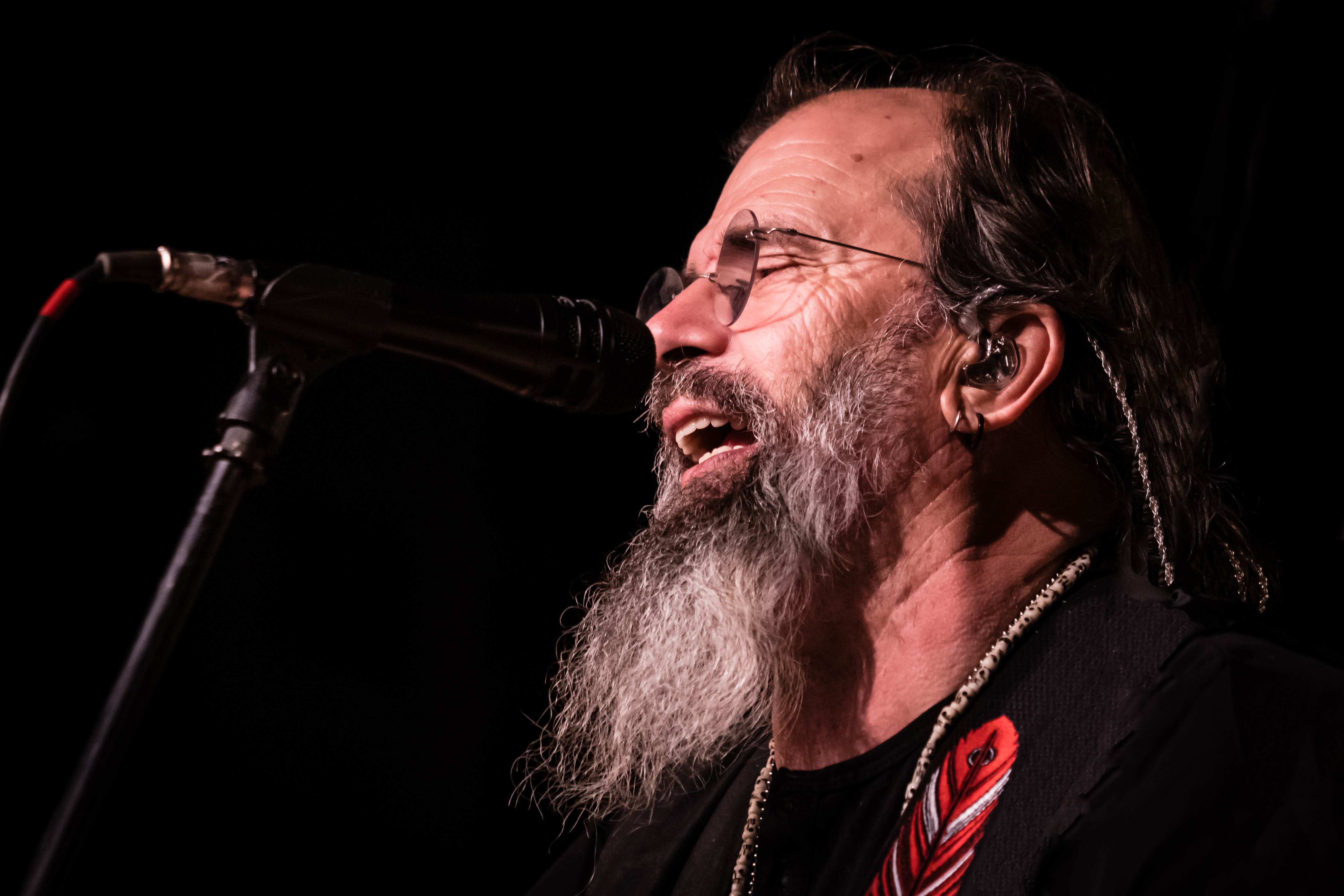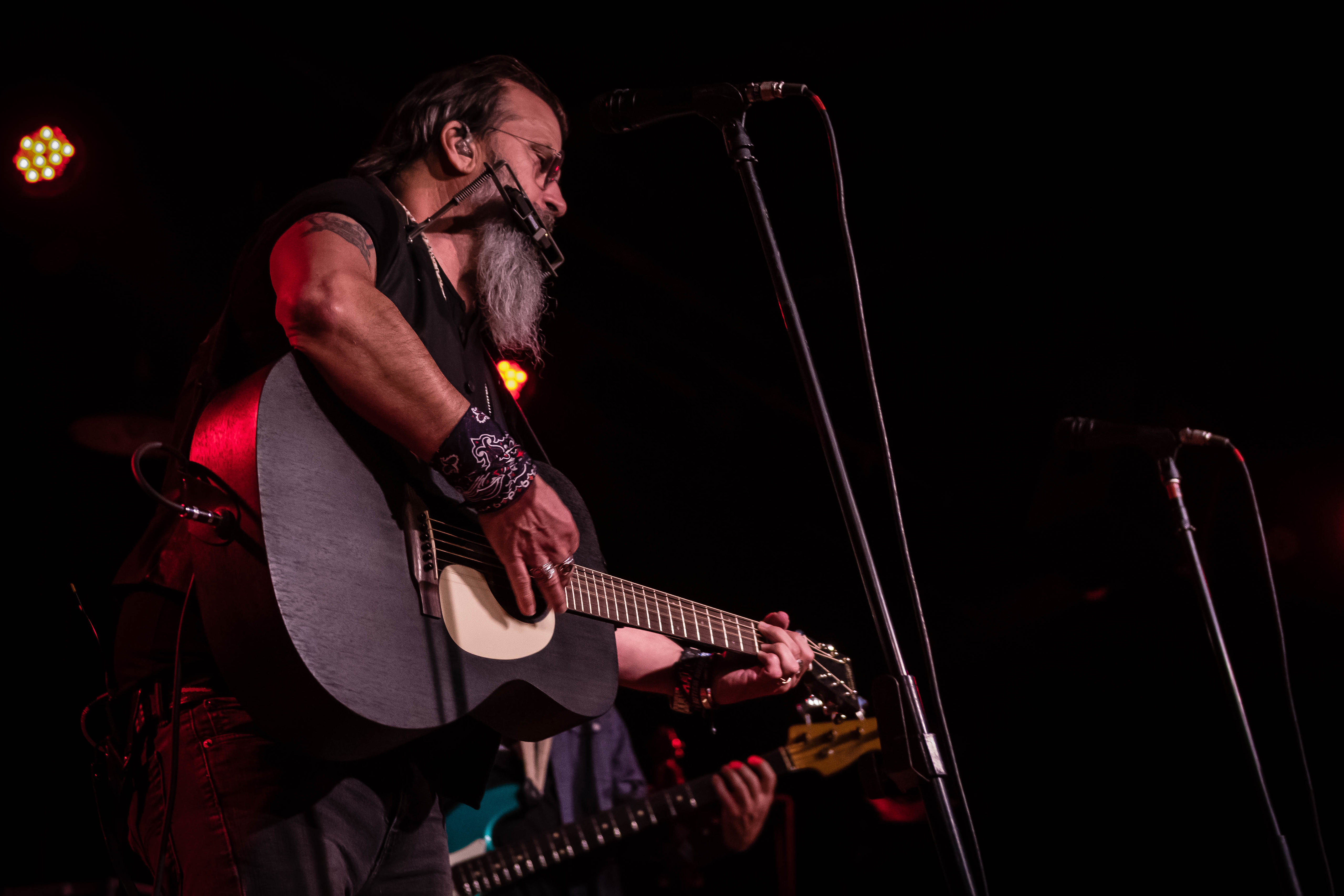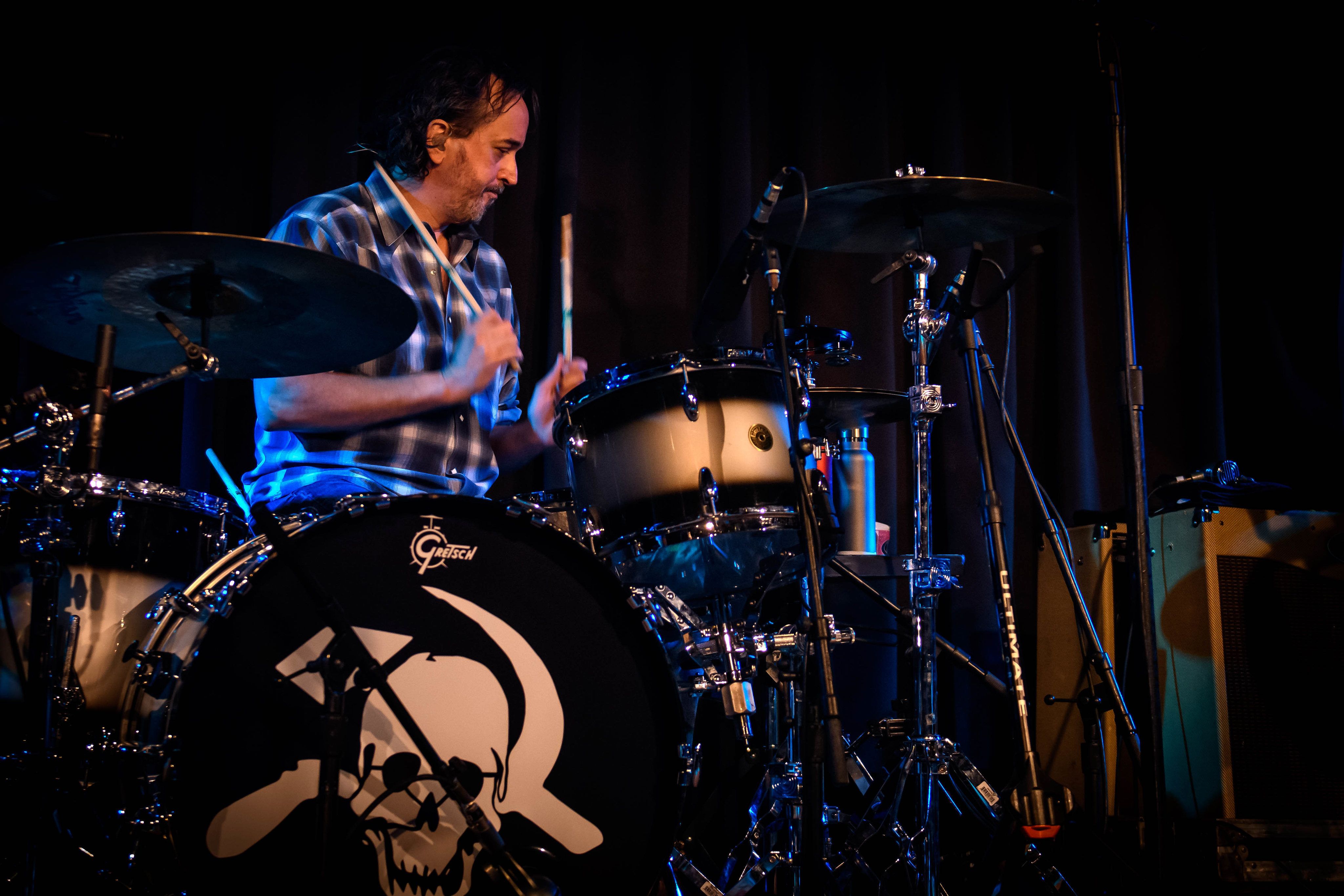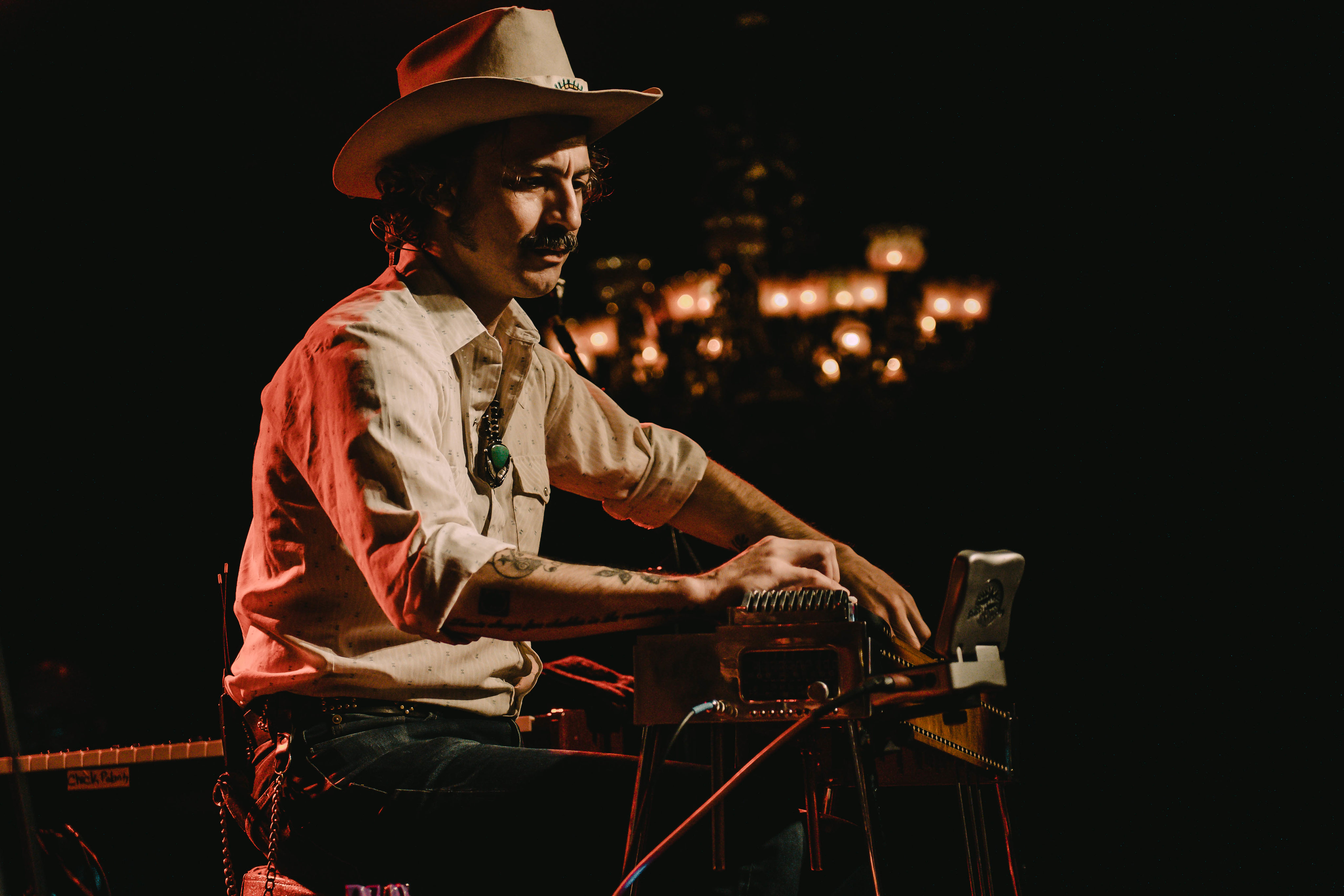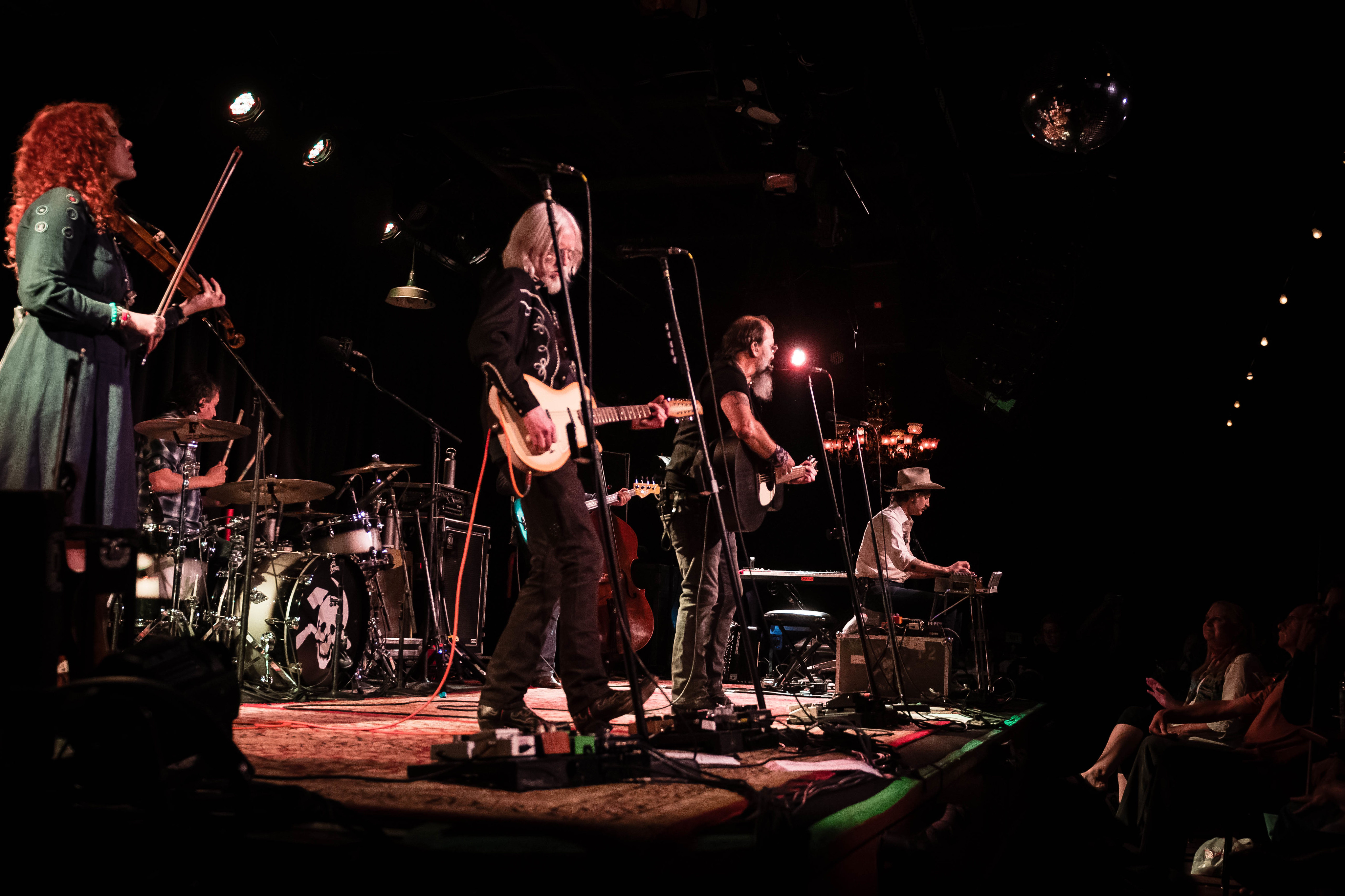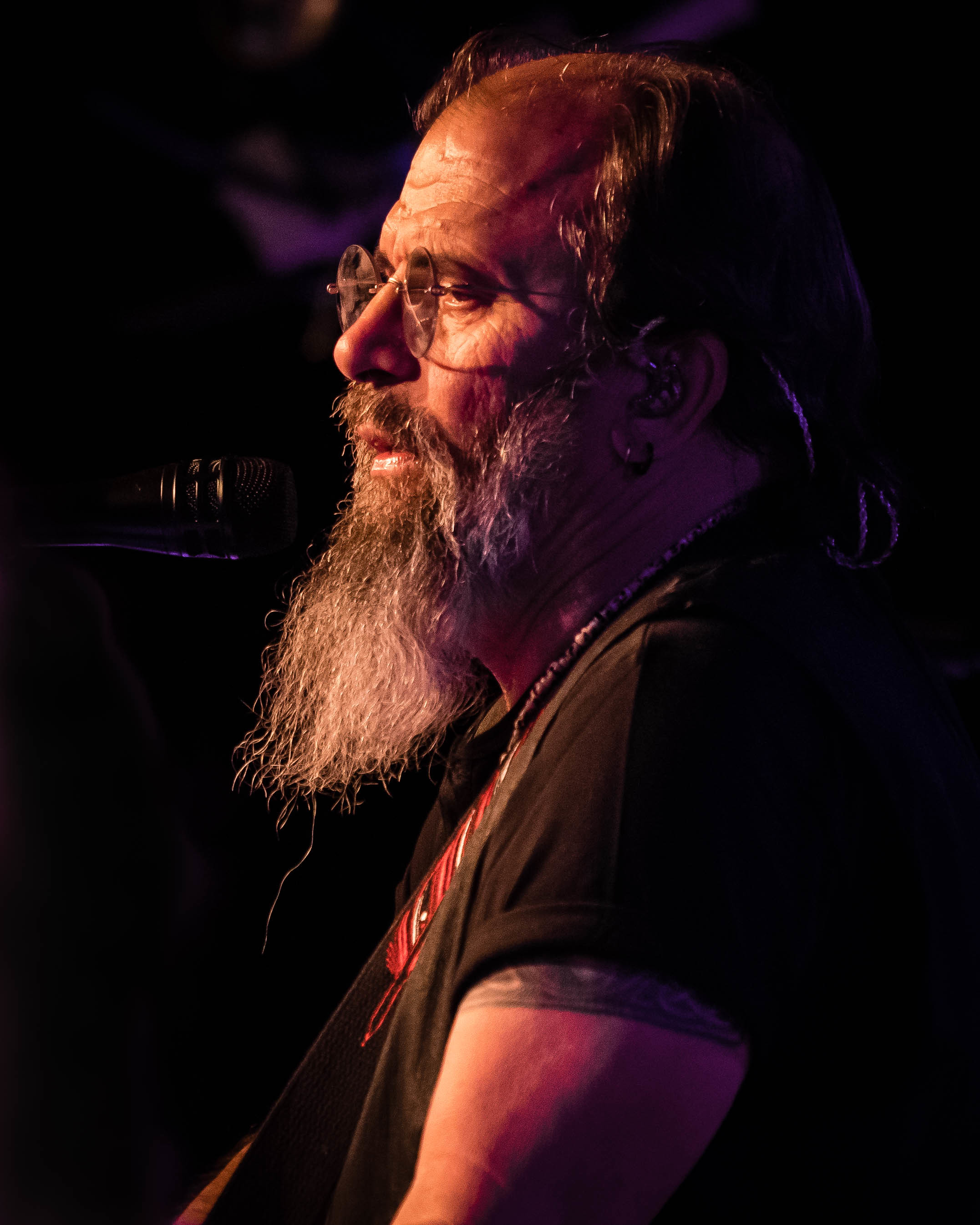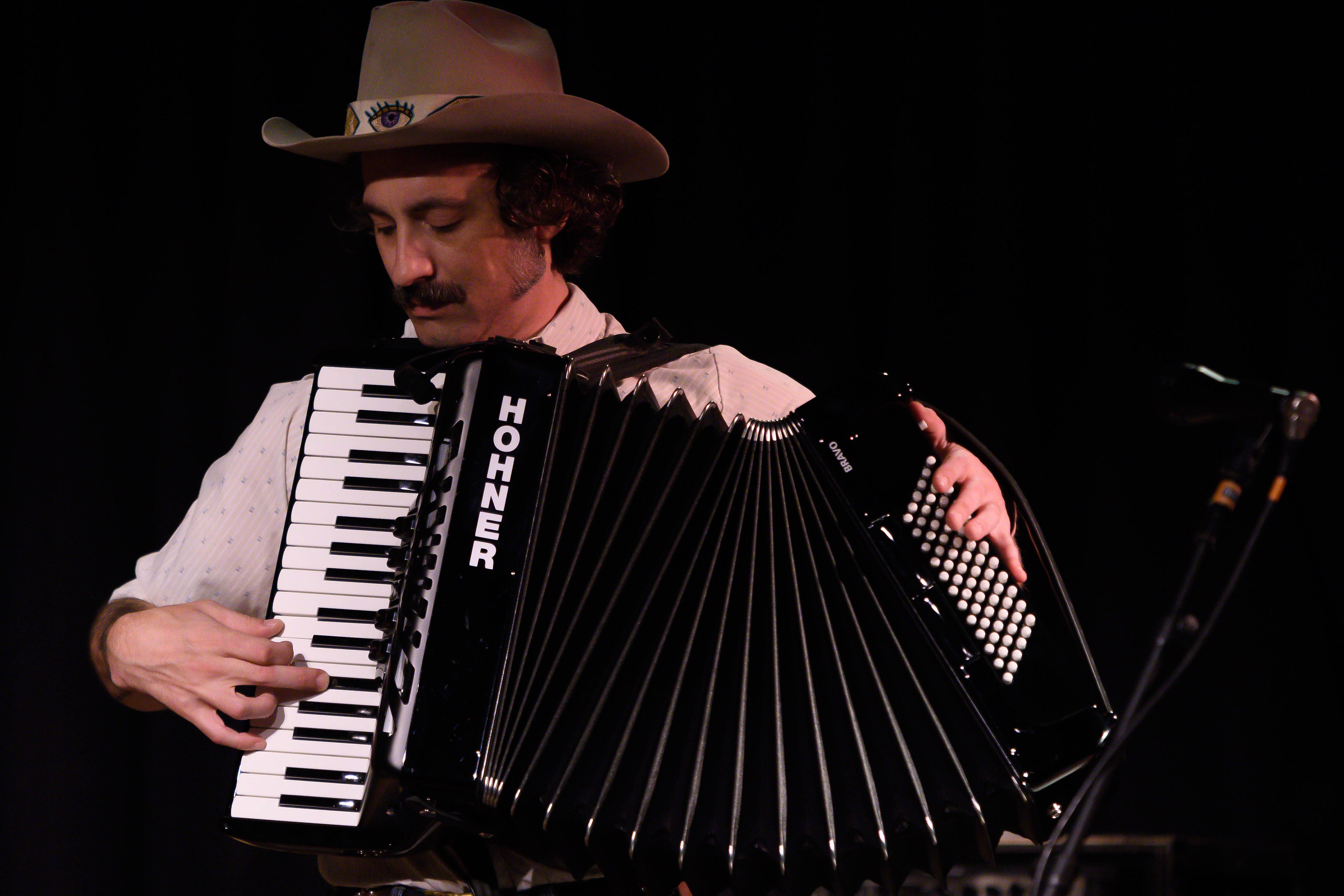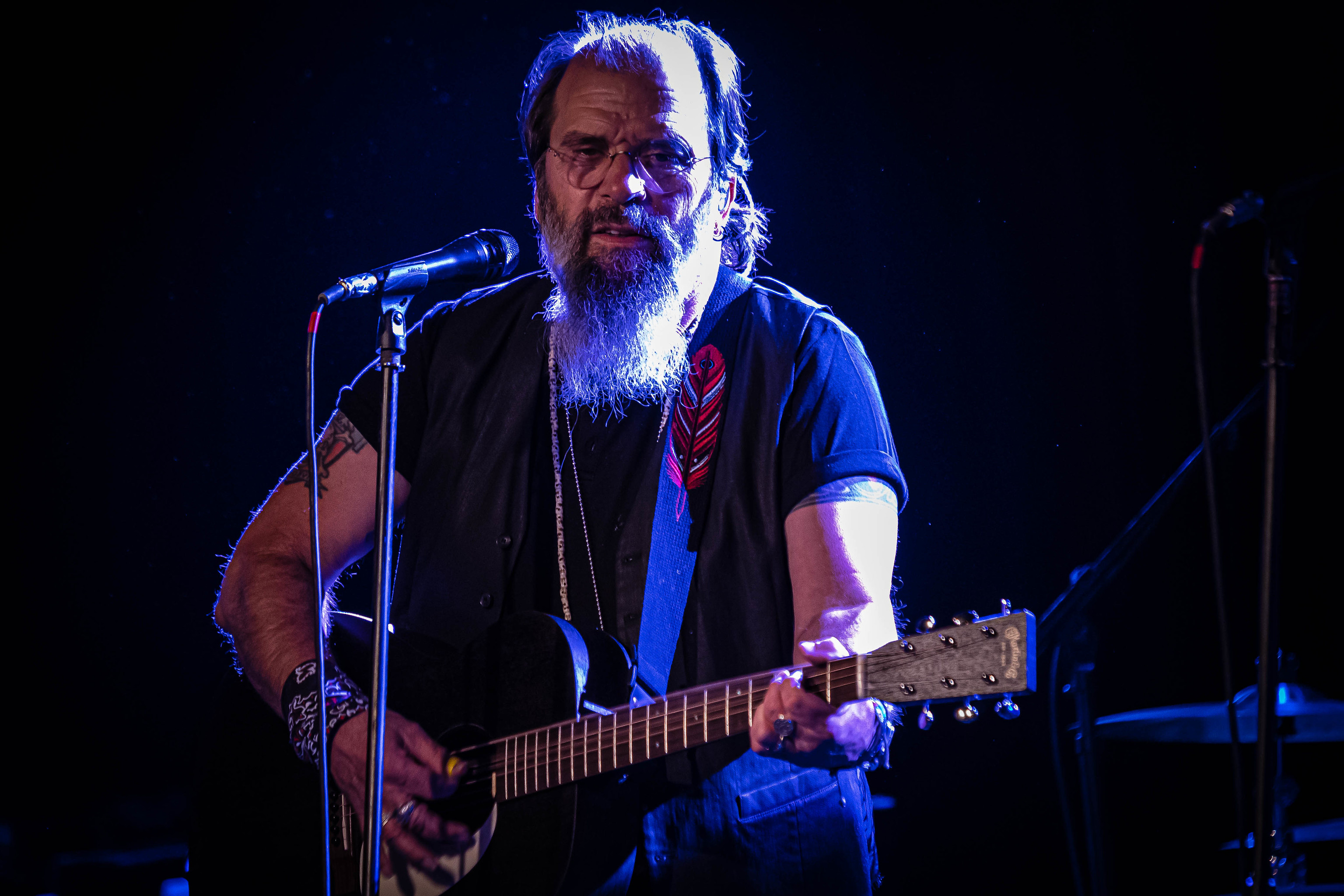
Steve Earle performs at The Birchmere on July 20, 2021. (Photo by Ari Strauss)
Steve Earle has been playing The Birchmere regularly for decades, since even before his debut album, 1986’s Guitar Town. He first visited the famed northern Virginia venue when he was playing bass in his mentor’s, Guy Clark, band. (Steve’s other mentor was the brilliant but deeply troubled songwriter Townes Van Zandt.) On Tuesday evening, Earle and his band, The Dukes (get it? it’s a pun on the early rockabilly song “Duke of Earl”) played the first of two nights at the club.
In the three and a half decades since the release of Guitar Town, Steve Earle has created a deeply respected and wide-ranging body of work. A self-described “cult artist,” his songwriting is held in the highest esteem by other writers, musicians, and artists. Although Steve may have left school after the eighth grade, his work is informed by a prodigious mind that delves incessantly into literature, history, and current politics. There’s a fearsome intelligence in his work, which has been noted by interviewers like Chris Shifflett, who has hosted Earle several times on his podcast, Walking the Floor.
Musically, Steve draws on a palette that includes Outlaw country and blues, heartland, country, and even hard rock, and bluegrass and folk, not only of the American South but Celtic as well. This diversity has made him hard to pigeonhole, and Steve is not especially interested in being categorized. His attitude is perhaps best summed up in his statement that “There’s two kinds of music, good music and bad music.” And yet, for the wide range of styles and influences that inform Earle’s work, a Steve Earle song is always, unmistakably, a Steve Earle song; there’s a consistent sonic identity and authorial voice.
As celebrated as he is for his songwriting, Steve is a livewire performer. He channels an incredible intensity into his performances that few artists can muster. Even in his late 60s, he still gets louds, snarls, and growls his way through marathon sets with the best of them. Including the encore, Tuesday’s set went to just less than 30 songs. About half an hour into the show, he joked that all folks with ankle monitors could go home before they blew up, but the rest of us were going to be there a while.
While no set could cover the entirety of his career, Steve got around to a lot of it on July 20. It was only fitting that he’d begin with “Feel Alright,” the title cut of his 1995 album, written about his recovery from addiction; it’s part anthem of hope and resilience, part kiss off to his critics, and a pitch-perfect choice for his return to live performance after the long pandemic year. That was followed by four cuts from Guitar Town: the ballad “Someday,” the title track, a harrowing account of life on the road; “Hillbilly Highway,” about the migration from the Appalachians to the factory towns of Ohio and Michigan; and “Fearless Heart,” a song about never giving up on love. He got political for a stretch after that with the anti-gun “Devil’s Right Hand” and a song meant to say, as he put it, “So long, fatso,” to the former US president. The next few songs jumped around: “Mystery Train, Part II” (a sort of sequel to Elvis Presley’s “Mystery Train,” from the 1995 acoustic album Train A-Comin’); “The Galway Girl,” a mandolin-driven Celtic folk ballad, from 2000’s Transcendental Blues; and the “power twang” (to use Steve’s own term) of 1988’s “Copperhead Road.”
During the pandemic, Steve and his band released two albums. The first, Ghosts of West Virginia, came out in May 2020 to some of his strongest reviews in quite some time. The album contains music from the off-Broadway show Coal Country, which documents, using their own words, the lives of those most directly affected by the 2011 Upper Big Branch mine explosion in West Virginia. In the play, which is not a musical, Steve acts as one-man musical chorus that comments on what is otherwise the direct testimony of the survivors and victims’ families.
Stream Ghosts of West Virginia by Steve Earle on Spotify:
To make Coal Country, Steve traveled to West Virginia with the writer/producers to learn the stories of the people directly affected by the disaster. Part of why he was brought along, he noted, was because “I talk like this,” referring to his distinctive Texan drawl and the often, shall we say, salty character of his language, which included several F-bombs over the course of the evening. He shared the observation that West Virginia isn’t really a red or a blue state; until recently, he noted, it was the most unionized state in the country. In the 2016 election, he said, Hilary Clinton said she was going to close down the coal mines, and Trump said he wasn’t, with the predictable consequence that the state supported “Florida Man.” Ultimately, Steve concluded, “Both were fucking lying.”
The stories and songs Steve shared from Ghosts and Coal Country were harrowing. In an all-too-brief moment, one miner, Tommy Davis, who had just come up to the top of the mine, lost three close relatives. Steve channeled Davis’s anger in “It’s About Blood.” Hearing him call the names of the 29 miners who lost their lives was harrowing when I first heard it on the album over a year ago, and it’s equally powerful now. Elinor Whitmore, who sung harmonies, played violin and keys, and who opened the show with her partner, Chris Masterson, sang the lead on “If I Could See Your Face Again,” which comes from the perspective of a woman who lost her partner, and then, additionally, lost custody of her partner’s son, who she’d been raising for several years. The Dukes also harmonized on the gospel of “Heaven Ain’t Going Nowhere,” and Steve dialed up a little audience participation on “Union, God, and Country.”
While the first album Steve released during the pandemic was planned, the second was not. In August 2020, Steve’s son, singer-songwriter Justin Townes Earle, passed away from a drug overdose after battling his addictions for decades. Describing the process as “not so much cathartic as therapeutic,” Steve said that he made the album JT, which covers several of Justin’s songs, for himself. Steve said less about the album, and about Justin, than he did about Ghosts, which is understandable; the pain of losing a child is almost unimaginable, and the man can only expose himself emotionally so much. He did share that Justin started writing songs in 2000, when he accompanied Steve on a trip to Chicago, where he was teaching a songwriting course at the Old Town School of Folk Music. Justin had planned to take a few classes but ended up teaching fingerstyle guitar. Earle also shared that Justin’s younger brother, Ian, helped him in narrowing down the song choices for the album; Justin was quite prolific, he noted, making eight albums and an EP in just 10 years. Steve and The Dukes played three of Justin’s finest songs: “Far Away in Another Town,” “Harlem River Blues,” and “The Saint of Lost Causes.”
In the back half of the set, Steve pulled into his grab bag. There was material from the ’90s: “Goodbye,” “Taneytown,” and “Hard-Core Troubadour”; “You’re The Best Lover That I Ever Had,” off his 2015 blues album, Terraplane; and several tracks from 2017’s So You Wanna Be an Outlaw, including the title cut, “Lookin’ for a Woman” and “Fixin’ to Die.” The set ended with a cover of Jimi Hendrix’s “Hey Joe.”
In the encore, Steve played “Nowhere Road” and “Baby, Baby, Baby.” He revealed that, sometime this fall, The Dukes will head back into the studio to record an album of Jerry Jeff Walker songs, and he closed the evening with Jerry Jeff’s “Big Mama Rag.” He noted that this tour was particularly intense, as he had to work a short window to get back to New York for the start of the school year to be there for his son John Henry, who is autistic.
Steve Earle never fails to disappoint as a live performer, and Tuesday was no exception. He’s one of our greatest singer-songwriters, and he knows how to rock as hard as anyone. We’re lucky to have him.
Here are some photos of Steve Earle & The Dukes performing at The Birchmere on July 20, 2021. All photos copyright and courtesy of Ari Strauss.

